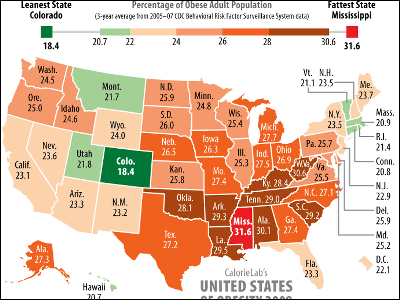``Toddlers hospitalized for acute cannabis intoxication'' surge in areas where cannabis is legalized

In Canada, the possession and use of cannabis as a recreational item was legalized on October 17, 2018, and from 2020, ``food sales containing cannabis ingredients'' are also permitted in some states. In states where such cannabis-containing foods have been legalized, research results have been published showing that ``cases in which children under the age of 9 accidentally eat cannabis-containing foods and are hospitalized for acute poisoning symptoms'' are increasing rapidly. .
JAMA Health Forum – Health Policy, Health Care Reform, Health Affairs | JAMA Health Forum | JAMA Network
Cannabis poisonings in young kids skyrocketed following legalization of edibles | Live Science
https://www.livescience.com/cannabis-poisonings-edibles-canada
Canada legalized the use and sale of cannabis nationwide in 2018, but it is up to individual provinces to decide whether to allow cannabis-infused products. A team of researchers from the University of Ottawa, University of Montreal, and McGill University in Canada will study the effects of legalizing cannabis and cannabis-infused foods on acute poisoning in children in Ontario , Canada's four most populous provinces. The survey covered the provinces of Quebec , British Columbia, and Alberta .
Of the four provinces surveyed, Ontario, British Columbia, and Alberta legalized cannabis-infused foods, including sweets, in January 2020, but Quebec is more appealing to children and young adults. prohibits the sale of cannabis-infused candies and desserts. Adults are less likely to develop acute poisoning even if they smoke cannabis, but children are at high risk of developing acute poisoning from eating cannabis-containing foods, and may experience symptoms such as excessive sleepiness, dizziness, difficulty walking, difficulty breathing, and convulsions. Symptoms may occur.
The research team studied ``January 2015-September 2018'' before cannabis was legalized in Canada, and ``October 2018-December 2019'' when only dried cannabis for smoking was legal in all states. From January 2020 to September 2021, when cannabis-infused foods were approved in three states, children ages 0-9 were hospitalized for acute cannabis poisoning in four states. . In addition, the total number of children aged 0 to 9 who lived in the four states covered during the survey period was over 3.4 million.

As a result of the survey, it turned out that there were a total of 581 cases in which children aged 0 to 9 were hospitalized due to acute cannabis intoxication during the survey period of about seven years. The average age of hospitalized children was only 3.6 years old.
In the 3 years and 9 months before cannabis legalization, 120 children were hospitalized, compared with 105 in the 1 year and 3 months when only dried cannabis was legal. In the one year and nine months after it became legal, there were 356 cases. In 2015, before legalization, 20 out of 651 cases (3.1%) were hospitalized for acute cannabis intoxication with all symptoms. %), an increase of more than 9 times.
The graph below shows the percentage of cannabis poisoning among children hospitalized for acute poisoning for each of Ontario (orange), Alberta and British Columbia (gray), and Quebec (black). Since 2018, when cannabis was legalized across Canada, the rate of children becoming addicted to cannabis has increased 2.6-3.1 times in all states. Also, when cannabis-infused sweets are legalized in Ontario, Alberta, and British Columbia in 2020, the percentage of children who become addicted to cannabis will increase even more compared to Quebec, which has not been legalized. You can see that there are

'In states where cannabis-infused foods are legal, cannabis accounted for approximately one-third of hospitalizations for childhood poisoning,' the researchers said. Restricting the sale of recreational cannabis is an important strategy and policy consideration for the United States and other countries considering recreational cannabis legalization to prevent unintentional cannabis poisoning among children. It suggests something,' he said.
Related Posts:







